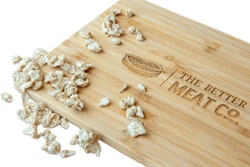
Scientists at the University of Massachusetts Amherst are focused on developing a better tasting, healthier plant-based protein.
“Real meat products have unique compositions and structural architectures (bundles of fibers) that lead to unique quality attributes, such as appearance, texture, taste, mouthfeel and nutrition. Plant proteins have different structures (globular proteins are like small balls) that need to be coaxed into meat-like structures,” explained food scientist David Julian McClements, University of Massachusetts Amherst Distinguished Professor and lead author of a paper in the new Nature journal, Science of Food.
Plant-based popularity explodes
Plant-based proteins have exploded in popularity in the past few years. In 2019, the U.S. plant-based food market was valued at nearly $5 billion, with plant-based meats making up 18.9% of sales.
Novelty and curiosity are two of the main factors driving consumer interest in meat alternatives, although many are also drawn to the perceived health benefits of plant-based proteins.
“Consumers perceive plant-based foods as being more sustainable, less damaging to the environment, more ethical and potentially healthier than animal-based ones. However, they must be carefully designed to ensure they are healthy,” McClements said.
“This is a rapidly advancing area that students and consumers are very excited about.”
Challenges to consumer acceptance
Although meat alternatives are typically viewed as healthier than animal products, some dieticians have pointed out that the amounts of sodium and saturated fat found in plant-based burgers are the same as those made of beef.
In addition, taste and texture have been a major challenge for manufacturers of plant-based proteins. Recent advances by Impossible Foods and the Beyond Burger have used chemistry-based approaches to make plant-based products better replicate the flavor of real meat. Other companies are testing infrared heating, roasting, fermentation and thermal treatment techniques to improve taste.
“More research is required to identify sustainable sources of high-quality plant proteins that have the appropriate functional and nutritional attributes. Also, more research is required to develop economic processing methods to convert these ingredients into meat-like products that consumers find acceptable,” said McClements.
Like what you just read? Sign up now for free to receive the Poultry Future Newsletter.


















